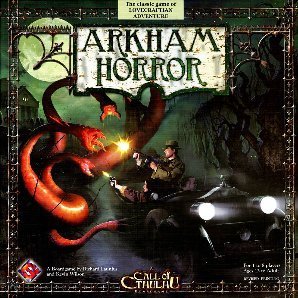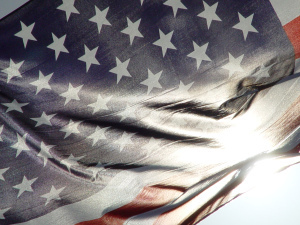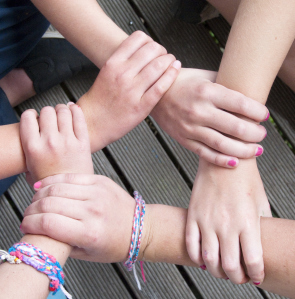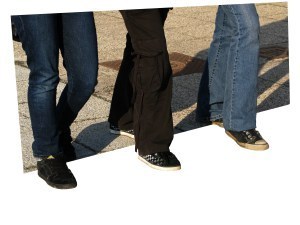Sare Liz Anuszkiewicz's Blog, page 35
September 22, 2011
Of Men & Whales…

And the whale goes 'om, nom, nom'
I love Jonah! Somedays, when I'm feeling awfully cranky, I think I am Jonah. The fact that Jonah never actually existed is completely moot because he's a perfect archetype for the outraged believer, a pair of shoes that can fit all of us on one day or another if we're not ever-so-careful. Can you hear it? I can…
"God, I really don't see why you should forgive (fill in the blank: person, community, nation). They're horrible. They do horrible things. And I can't believe you made me go talk to them because I just KNEW this would happen. They'd be all shocked and remorseful and say they're going to change their ways and you'd just TAKE THEM BACK. This is such bullshit. I love that you're loving, but could you be a little less loving please? Just for the moment? And what the hell just happened to my houseplant, dammit!?!"
And then God replies, "My darling child, I know you're pissed off. And I know you're upset about your houseplant, which you bought for three dollars and forgot to water for two months. Imagine how I feel about (fill in the blank: person, community, nation) who I did not forget to water, and who is in a bit of an idiot phase really, not knowing whether they're coming or going. Besides, there were cats. Did you want me to condemn their warm, fuzzy adorableness? No, I didn't think so. I love you, I support you, get back to work, please."
And where does that get any of us, really? Nowhere fast, or to be precise: just more of the same that we've gotten before and in hindsight perhaps been less than utterly thrilled with. So what's a girl to do? Well, perhaps it's time to do something different, after all. Perhaps we're not exactly ready for the kind of forgiveness that God practices regularly, and with us too, but perhaps we can take one step in the right direction. One baby step, that is. And what is that baby step for you? How should I know? But I can tell you how you'll know what it is. The hallmarks will be peace, joy, and love. When you're doing something you've never done before and feel strangely, wonderfully peaceful about it, when you experience slightly more joy (or slightly less suffering) with choice B versus choice A, when you can logically and rationally link back the action to a base of loving your neighbor and yourself, THAT will be your baby step.
some of the content of the blogpost was taken from the Monday Morning Exegete








September 12, 2011
Arkham Horror?

Tentacles are something of a theme...
What in blue blazes is this Arkham Horror thing? You've heard about it on the barnraiser's calendar, or seen it around and it evokes images of Batman and Prostitution. Understandable, though off base. Well, truth be told, it's a slightly addicting board game with a lot of little pieces. Everybody wins or loses together and dice is involved. Reading all of the instructions involved counts as a solid check mark for your Summer Reading List, and understanding the mythos behind the game could either freak you out or qualify you for a really fab conversation with your pastor next Sunday regarding the struggle of good vs. evil in the hearts and minds of all humanity.
So, the game is based on a book and a heap of short stories that aren't a series but certainly are all written in the same Universe/Mythos by the same author, who is H.P. Lovecraft. (Heard of him? Not heard of him but vaguely reminded of tentacle monsters, somehow? Fantastic, you're on the right track.) Lovecraft wrote earlier in the last century all along a theme, or a basic assumption, and that assumption is this: what if when poets and authors and musicians and actors and lovers got in touch with their inspiration, what they were actually touching on the other side of the veil produced… madness? What if when mystics and spiritualists were able to look directly beyond the veil what they saw drove them mad?
Lovecraft, a rather depressed man (among other things), wrote as a response to what he understood to be baseless Christian Humanism, and this is possibly one of the reasons I love reading his work. I like to get the full picture, so to speak, and my religious nay-sayers have got nothing on tentacle monsters from beyond the veil who if I'm lucky, will devour me last. (The tentacle monsters, not the religious nay-sayers. Just to be clear.)
And so I have fun rolling dice and killing monsters while lulling the unkillable Big Bad back to sleep, even while I think about what evil really means in the world, what grace means, what it does to a life to concentrate on peace, love, and joy rather than suffering, unhappiness, and the distance from others caused by resentment, anger and hatred. And if you like, you can join me. We play at 8pm on the third Wednesday of the month at Ol' Wondermoth, 208 North St, 14201. Beginners are welcome. 








September 5, 2011
What if the USA were a truly Christian nation?
 This isn't a rhetorical question, nor is it a desire for the USA to become a one-religion state. That's just silly talk. But I hear a lot of discourse, and most of it conservative, and it bemoans and bewails the fact that the USA was supposed to be a Christian nation (one nation under God, etc, etc), and now they're not letting us pray in schools or display the 10 commandments in the courthouse. Intentions of the founding fathers aside for a moment (you might be amused to hear about Jefferson's personal theology, not to mention his reader's digest version of the bible, but that's another blogpost for another day), I'd like to posit an interesting juxtaposition for your consideration, care of the calendar and the makers of the Revised Common Lectionary.
This isn't a rhetorical question, nor is it a desire for the USA to become a one-religion state. That's just silly talk. But I hear a lot of discourse, and most of it conservative, and it bemoans and bewails the fact that the USA was supposed to be a Christian nation (one nation under God, etc, etc), and now they're not letting us pray in schools or display the 10 commandments in the courthouse. Intentions of the founding fathers aside for a moment (you might be amused to hear about Jefferson's personal theology, not to mention his reader's digest version of the bible, but that's another blogpost for another day), I'd like to posit an interesting juxtaposition for your consideration, care of the calendar and the makers of the Revised Common Lectionary.
Now the calendar is as it is, but in case you're curious, the Revised Common Lectionary is the three year cycle that a whole bunch of Christians use to read a solid chunk of the bible in church on Sunday, bit by bit over the course of three years. Some bits of the bible get skipped and some get emphasized, but it'll give you the gist if you show up. Now, September 11th falls on a Sunday this year, which means that a whole lot of church-going folk are going to be present in the pews, and if they're Roman Catholic, Episcopalian, Lutheran or United Methodist here's what they're going to hear: Matthew 18:21-35. And you're saying… so?? Well, here's what Matthew 18:21-35 says, from the New Revised Standard Version of the bible:
Peter came and said to Jesus, "Lord, if another member of the church sins against me, how often should I forgive? As many as seven times?" Jesus said to him, "Not seven times, but, I tell you, seventy-seven times.
"For this reason the kingdom of heaven may be compared to a king who wished to settle accounts with his slaves. When he began the reckoning, one who owed him ten thousand talents was brought to him; and, as he could not pay, his lord ordered him to be sold, together with his wife and children and all his possessions, and payment to be made. So the slave fell on his knees before him, saying, `Have patience with me, and I will pay you everything.' And out of pity for him, the lord of that slave released him and forgave him the debt. But that same slave, as he went out, came upon one of his fellow slaves who owed him a hundred denarii; and seizing him by the throat, he said, `Pay what you owe.' Then his fellow slave fell down and pleaded with him, `Have patience with me, and I will pay you.' But he refused; then he went and threw him into prison until he would pay the debt. When his fellow slaves saw what had happened, they were greatly distressed, and they went and reported to their lord all that had taken place. Then his lord summoned him and said to him, `You wicked slave! I forgave you all that debt because you pleaded with me. Should you not have had mercy on your fellow slave, as I had mercy on you?' And in anger his lord handed him over to be tortured until he would pay his entire debt. So my heavenly Father will also do to every one of you, if you do not forgive your brother or sister from your heart."
And the moral of the story is this: No matter what, forgive. And if you need the threat of punishment, then how about this: give as you've gotten or you'll get as you've given.
This is what Jesus teaches. And what's more? This isn't a one off, because this is the sort of shit he's always going on about. Love your neighbor, forgive each other, heal each other, live in peace with one another… It's just one story after another with this guy, and all on a theme. And it's the way he lived his own life, going around preaching and teaching people a new way of life, offering them a new way of life.
…A new way of life that his students didn't always understand, hence Peter's question at the beginning of this little section. And Peter was at the head of the class and he didn't get it…
Loving our neighbor as our selves as a way of loving God was the thing that Jesus preached left, right, up, down and sideways. It was the thing that he lived right until they killed him for it. It was the thing that his students tried to understand, but certainly didn't get during his lifetime. It was the thing that he said was the cornerstone, the foundation of everything else, the thing you could use as a touchstone, a comparative analysis tool.
And forgiveness is a part of loving our neighbors as our selves as a means of loving God. But let's be clear here: sometimes forgiveness also means saying no, I forgive you and I won't enable you in your bad behavior.
I mean, let's think about this. What is forgiveness? There are many different definitions we could use, but what is it materially? What's the essence of a true, deep, solid forgiveness? Isn't it when you get to that point where one of two things happen and then that leads to a total release, a sense of no longer being connected to the suffering of the event even if the pain persists? Isn't it when you are able to see deeply into either (or both) your own reasons for being upset, and/or the other person's reasons for offending so much so that you can have deep compassion about the incident? And maybe this, the incident is something relatively minor like an argument with a spouse, but perhaps it's deeper.
Perhaps the offender is an addict and no amount of forgiveness is going to keep them from abusing substances, themselves and everyone around them until they get the proper support and make the decision and the steps to stop. In that case a person can forgive the addict without excusing the behavior. A person can forgive the addict without staying and enabling bad behavior. A person can forgive forever, deeply aware of why the behavior is happening even while they remove themselves from a destructive situation. A person can achieve their own release, their own peace even while they forgive the offender from afar.
Perhaps the offender is a known or unknown terrorist or regime and no amount of forgiveness is going to change their ideology or bring a loved one back. Perhaps the pain, the grief, the sorrow and the suffering are so mixed up and intertwined that the idea of forgiveness gets confused and murky. Forgiveness does not mean that grief is cut short or pain evaporates. Forgiveness does not mean that justice is averted or that sorrow is invalid. Forgiveness means that the suffering, the thing that was eating us alive, the thing that was promoting in us the sinful but oh-so-delicious desire for revenge, retribution and death, the thing that was making monsters out of us, forgiveness puts that to rest. Forgiveness allows us to experience the purity of our grief and pain and sorrow without giving care and feeding to the monster within who can sink to the same level as our offender. And at this level of offense, maybe forgiveness is the wrong word, though it's the same action. We could also think of it as healing. In order to live our lives as mature human beings, as mature Christians for those of us who are, we are called to the greatest and deepest healing of self and others that we are possibly capable of, and if we're walking around with a gaping wound that we refuse to tend to… Well, at the very least, our capacity to help heal others with similar wounds is dramatically reduced.
So what would it look like if the USA were truly a Christian nation, or at least a nation that espoused the morality that was embraced by the founder of Christianity, Jesus of Nazareth?
Our federal budget would look very different, I'll tell you that for certain. We'd be engaged in a whole lot of healing and a lot less fighting. What a dream!
I think I'll dream that dream this Sunday. Feel free to join in if you like.
[Like what you read? Some of it came from this week's Monday Morning Exegete.]








June 17, 2011
Anarchy, Discord & the Kingdom of Heaven
So, I was making the morning coffee in that bleary-eyed way one does, thinking about making breakfast with one of my housemates whereupon I spied a bright green tri-fold brochure which heralded "Discordianism: The Un-Religion". My curiosity was piqued…
Anarchy
 One of my housemates is an Anarchist. I can tell you that his name is Henri because his name isn't actually Henri. We didn't get along very well at first, Henri and I. This, I think, is because I would periodically show up looking like a cleric, and he had a tendency to be rather loud and just as angry, which puts me off my tofu. Well, he's mellowed and I've started speaking, and we found out that we have a metric fuck-tonne in common in the basic principles on which we structure our lives.
One of my housemates is an Anarchist. I can tell you that his name is Henri because his name isn't actually Henri. We didn't get along very well at first, Henri and I. This, I think, is because I would periodically show up looking like a cleric, and he had a tendency to be rather loud and just as angry, which puts me off my tofu. Well, he's mellowed and I've started speaking, and we found out that we have a metric fuck-tonne in common in the basic principles on which we structure our lives.
I'm not tied to the Order Of Things, despite being part of it. Unsurprisingly, neither is he.
He wants to live in a world where we can spontaneously respect and love each other without having that legislated, orchestrated, and enforced by people who very clearly don't do it either. Me, too.
We mutually agree that there is an energy at work in the world that is beneficent, and that we can tap into it whenever we please, and fail to do so at our own peril. Futher, we agree that tapping into said energy is to be set free. He has a name for it. I have a name for it. Shakespeare taught me that names don't matter, however. But we agree on the energy, without reservation.
I've taught him what walking in the footsteps of Christ means to me, the Kingdom of Heaven, the Summary of the Law. How it pains me to see people use Christianity as a bludgeon and Jesus as an assault rifle. How I think it's a better use of my time to A) teach the Summary of the Law as a priest and meanwhile B) reform the church from within, rather than to strike out and be a non-denominational wandering spiritual teacher. At least, that's what I think at this point. And that is my point to him: This is what I have energy for, so this is the way I'm going to try and change my corner of the Universe for the better.
And he has taught me what true anarchy is. It's not rioting and vandalism. It's not protecting your own with a shotgun. It's Lennon's song, "Imagine". It's people living without sinning against one another, or repenting spontaneously when they do–that is, if you define sin the way I do, as a breaking of relationship: trust, love, friendship, understandings, contracts, handshakes, hopes, dreams and the best for each other whether anyone sees it or not. And when we can live without sinning against one another… then yes. We can live without governments. But we're not there, yet. Metaphorically speaking, Anarchy is a college level subject with certain rather important prerequisites, and we've only just mastered the use of commas in elementary school.
An Ancient Interlude
"Now is the time" by Hafiz
Now is the time to know
That all you do is sacred.
Now, why not consider
A lasting truce with yourself and God.
Now is the time to understand
That all your ideas of right and wrong
Were just a child's training wheels
To be laid aside
When you can finally life
With veracity
And love.
Hafiz is a divine envoy
Whom the Beloved
Has written a holy message upon.
My dear, please tell me,
Why do you still
Throw sticks at your heart
And God?
What is it in that sweet voice inside
That incites you to fear?
Now is the time for the world to know
That every thought and action is sacred.
This is the time
For you to deeply compute the impossibility
That there is anything
But Grace.
Now is the season to know
That everything you do
Is sacred.
Discord, The Religion
 Discordianism is an adorable religious movement that started in the seventies precisely where you'd imagine it might: the San Francisco Bay Area. And all of the fluff and stuff aside, it has some interesting points and some startling insights. Fluff and stuff aside, here is the text of "A Sermon on Ethics and Love"
Discordianism is an adorable religious movement that started in the seventies precisely where you'd imagine it might: the San Francisco Bay Area. And all of the fluff and stuff aside, it has some interesting points and some startling insights. Fluff and stuff aside, here is the text of "A Sermon on Ethics and Love"
One day, Malaclypse the Younger asked the messenger spirit Saint Gulik to approach the Goddess and request her presence for some desperate advice. Shortly thereafter, a radio came on by itself, and an ethereal female voice said, "YES?"
"O, Eris, Blessed Mother of Man! Queen of Chaos! Daughter of Discord! Concubine of Confusion! O! Exquisite Lady, I beseech You to live a heavy burden from my heart!"
"What bothers you Mal? You don't sound well."
"I am bothered with fear and tormented with terrible visions of pain. Everywhere people are hurting one another, the planet is rampant with injustices, whole societies plunder groups of their own people, mothers imprison sons, children perish while brothers war. O, woe."
"What is the matter with that, if it is what you want to do?"
"But nobody wants it! Everybody hates it!"
"Oh. Well, then stop."
At which point She turned Herself into an aspirin commercial and left the Polyfather stranded alone with his species.
And if that isn't to the core of A Course in Miracles, and Eckhart Tolle's teachings, and the revelation to Neale Donald Walsch, then I'm not sure what is. (And all of which, since I have just quoted them, you will imagine that I agree with to some greater or lesser degree. Usually greater, but not necessarily wholesale.) And so, I read the lime green brochure left in my kitchen by some friend of my house and I laughed at the nonsense and nodded at the wisdom, all the while my housemate stared at me in trepidation, waiting for me to be offended.
…Clearly, I am not representing myself and my personal theologies clearly enough to my housemates. But also, the world is about as ready for Discordianism as it is for Anarchy, or even… and this pains me… the Kingdom of Heaven.
A Nearly-Contemporary Interlude
"Imagine" by John Lennon
Imagine there's no Heaven
It's easy if you try
No hell below us
Above us only sky
Imagine all the people
Living for today
Imagine there's no countries
It isn't hard to do
Nothing to kill or die for
And no religion too
Imagine all the people
Living life in peace
You may say that I'm a dreamer
But I'm not the only one
I hope someday you'll join us
And the world will be as one
Imagine no possessions
I wonder if you can
No need for greed or hunger
A brotherhood of man
Imagine all the people
Sharing all the world
You may say that I'm a dreamer
But I'm not the only one
I hope someday you'll join us
And the world will live as one
The Kingdom of Heaven
 Jesus had a lot to say about the Kingdom of Heaven (or as it is sometimes referred to, the Kingdom of God: same thing), but most of what he had to say was in parable form. Depending on which biblical scholar you ask, parables are either properly read as allegory, in which each element of the parable story has a one-to-one relationship with reality as we know it, or read as metaphor, in which there is a direct relationship between story and reality, but not every single element has a specific role, or as none of the above. The None Of The Above option proposes that a parable is supposed to be a one-point story. Everything else, aside from the single point the listener is supposed to get from it, is just window dressing, to give the story substance.
Jesus had a lot to say about the Kingdom of Heaven (or as it is sometimes referred to, the Kingdom of God: same thing), but most of what he had to say was in parable form. Depending on which biblical scholar you ask, parables are either properly read as allegory, in which each element of the parable story has a one-to-one relationship with reality as we know it, or read as metaphor, in which there is a direct relationship between story and reality, but not every single element has a specific role, or as none of the above. The None Of The Above option proposes that a parable is supposed to be a one-point story. Everything else, aside from the single point the listener is supposed to get from it, is just window dressing, to give the story substance.
And none of this matters. There are two big take-home points of Jesus' parables. Point Number One: They're happening right now. The Kingdom of Heaven is not something to look forward to when we die, it's RIGHT NOW stuff. Point Number Two: It's the opposite of what mainstream society says is normal/good/right/obvious. This was true two thousand years ago and it's true now. We don't get it, largely, because few of us have degrees in ancient anthropology enough to say, 'hey, that story jesus just told would have totally put his audience on their head', but every single parable did.
So, the Kingdom of God, Jesus tells us, is RIGHT NOW, and NOT THE WAY YOU'VE ALWAYS DONE IT.
And what counter-cultural message did Jesus teach that would apply to that sense of immediacy and change? Love God with everything you've got, and if you find ourself confounded or confused, go on ahead and Love Your Neighbor as you Love Yourself, and you'll end up loving god without even realizing it. (This, from Matthew 22:34-40, or if you like, Mark 12:28-34, and there's fun times in Luke 10:25-28. Don't forget Leviticus 19:17-18, cause that's fun, and if you have a Gospel of Thomas handy, check out Logion 25. And if you're still bored, look at Deuteronomy 10:12-22. The Golden Rule can be found in Matthew 7:12, and we've been staunchly instructed to LOVE OUR ENEMIES in Matthew 5:43, which between God, ourselves, our neighbors and our enemies… that seems to fit everybody in, don't you think? Okay, enough with the bible quotes.)
And what did the first Christians do? (Or at least some of the first christians, according to the Acts of the Apostles Chapter 2, verses 43-47.) They sold their possessions, gave the proceeds to the poor, held all their goods and remaining wealth in common, spent a lot of time together, and lived and ate with glad and generous hearts. They loved one another as Christ loved them. It's amazing what we can do when we see positive behavior modeled for us. These first Christians lived out the Kingdom of Heaven they wished for everyone else. They practiced what they preached. They were the change they wanted to see in the world, to paraphrase Gandhi.
And it didn't last. There are pockets of people here and there who do this sort of thing, or part of it. I live in one such community, but we're not common, we're often mocked, belittled and held in derision. :Shrugs: The people who do that clearly don't get it, and that's okay, because the Kingdom of Heaven is a concept whose time has not yet come, ditto anarchy and discordianism. At least, it can't function on a really large scale. But these concepts? They do work on the small scale, and it is in the small scale that we will eventually hit the tipping point to be able to work with veracity and love on the large scale. But it starts here. It starts at home. It starts in my home, and in yours.
 So here's the challenge: You and me. It's up to us. We can choose, and no one can require of us otherwise, to love our neighbor as ourselves. This means we have to love ourselves. This may take some time all on its own. Love means respect. We have to respect ourselves. For some people, this require years in therapy. For others, it requires just a few changes made after a long couple of periods of thought. And building on the foundation of loving yourself, and watching other people loving and respecting themselves, we can start to love the people around us. And love means respect, it means value, it means know deeply. It means to work in the best interest, or in the mutual interest, and not just in your own self interest. And this will change our business practices. And it will change our buying practices. And it will change the way we speak. And it will change the way we think. And it will change the way we feel and react to the world around us. And that's just you and me, because in the end, the only and I mean only person you can change is yourself. And if you don't change yourself, what right do you have to ask someone else to change? None. No right at all.
So here's the challenge: You and me. It's up to us. We can choose, and no one can require of us otherwise, to love our neighbor as ourselves. This means we have to love ourselves. This may take some time all on its own. Love means respect. We have to respect ourselves. For some people, this require years in therapy. For others, it requires just a few changes made after a long couple of periods of thought. And building on the foundation of loving yourself, and watching other people loving and respecting themselves, we can start to love the people around us. And love means respect, it means value, it means know deeply. It means to work in the best interest, or in the mutual interest, and not just in your own self interest. And this will change our business practices. And it will change our buying practices. And it will change the way we speak. And it will change the way we think. And it will change the way we feel and react to the world around us. And that's just you and me, because in the end, the only and I mean only person you can change is yourself. And if you don't change yourself, what right do you have to ask someone else to change? None. No right at all.
And so, as someone who is changing herself, and has been for some time now, I'm asking you, I'm challenging you to do the same. You have the world to gain, and nothing at all to lose.
"Now is the time to understand that all your ideas of right and wrong were just a child's training wheels to be laid aside when you can finally live with veracity and love." Hafiz had it right. Let's start living our own small lives with veracity and love. You and me. Right now.











